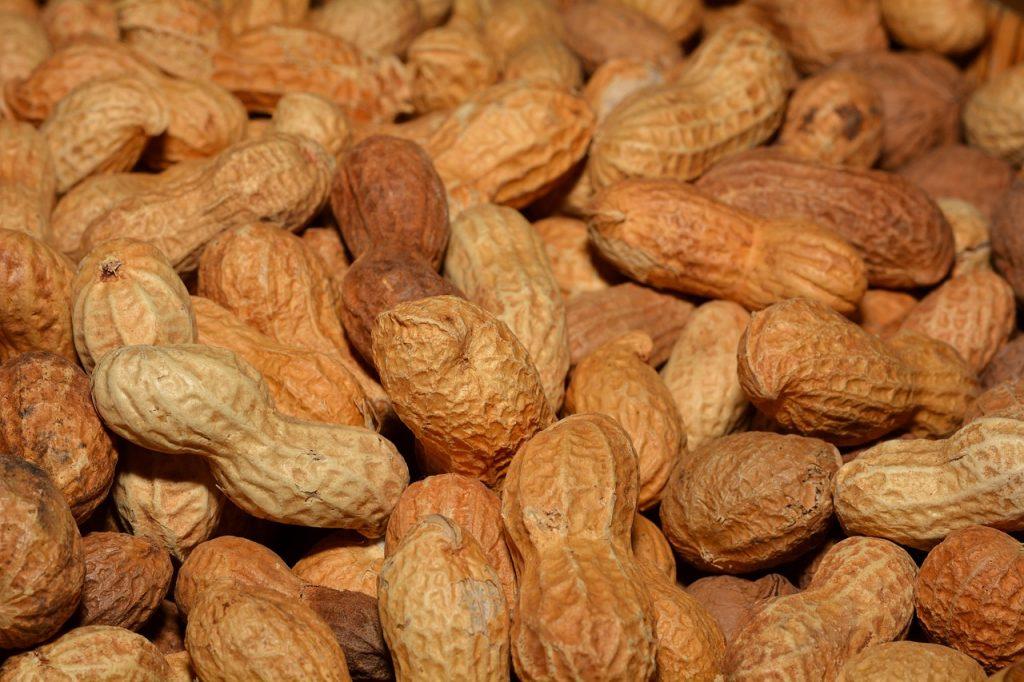Groundnut is healthy food for both man and lower animals because of its high nutrition composition of carb, protein, fiber, fats, minerals, and vitamins.
One important extract from peanut that’s edible for man is the oil. The end product of the extraction is the groundnut cake (GNC) which can be used to feed livestock and birds.
Peanut oil contains a variety of different ingredients which can vary greatly due to the origin of the peanuts.
Depending on the growing region and regional conditions, it can be that the ingredients are very different.
This is because the peanut plant is grown throughout the world and depending on the region, the soil, and conditions, they are very different.
Peanut Oil Nutrition and Benefits
Peanut oil is rich in protein, fiber, good fats, essential minerals and vitamins, and low in carbs.
- Protein
Peanut oil is rich in protein. The protein content is 25% of the total nutrients. A 100 gram of peanut oil has about 26% protein.
L-arginine is an important protein in this oil, and it’s responsible for its sexual benefits on men.
Eating peanut daily can be good for your overall health but I advise you to take not more than 100 grams.
Too much it can cause side effects for those who’re allergic. It can also help you gain more weight, so not good if you’re trying to losing weight.
Since it’s very rich in fiber, you should also not consume much peanut oil at night.
- Fats
It has 13 doubly unsaturated to 43 percent linoleic acid residue, 35 to 70 percent unsaturated oleic acid residue.
Fatty acid residues such as:
- 0.5 to 3% Arachidic acid
- 0.5 to 3 percent Lignoceric
- 1.3 to 6.5% stearic acid
- 7% to 16% Palmitic acid
- Vitamin and Minerals
Peanut oil also contains vitamins – Vitamin B1, Vitamin D, Vitamin E, Vitamin K
In particular, the high content of vitamin E is remarkable.
Approximately 23.4 mg vitamin E is contained in 100 grams of peanut oil and provides so much for strengthening the immune system, promotes cell renewal, and may counteract inflammation processes.
Vitamin B1 is also known to be of high importance to the body as it provides for a smooth function of the thyroid gland and Furthermore, it is important for carbohydrate metabolism.
Depending on where the peanut oil was grown, the ingredients are different. African peanut oil has a relatively high proportion of oleic acid while South American peanut oil has approximately equal parts of linoleic acid residue, such as remains of oleic acid.
Because peanut oil is composed of triglycerides, it is at room temperature liquid and fixed at cold temperatures.
This has, however, does not affect the quality. The valuable ingredients of peanut oil are used in the field of medicine and pharmacy.
For example, it can lower the bad cholesterol level and the content of unsaturated fatty acids in the Triacylglycerides.
But as Enema, it is made so that the hard feces in the rectum is softened.
Also, it is used as eye drops, creams, shampoos, and toiletries. Even in baby care products, peanut oil as an ingredient is a basis for ointments.
Conclusion
Peanut oil or Arachis oil is one of the healthiest oils in the market, rich in monounsaturated fat and low in polyunsaturated low.
It is not genetically modified and good for cooking, deep frying for chicken and other meats.
Groundnut oil is a little better and healthier than canola, coconut, and even olive oil, but if you cant get peanut oil, your best alternative could be sesame oil.
If you want to buy high-quality peanut oil, you should always look at the label to see how much the proportion of the ingredients.
